On May 8, 1954, the Geneva Conference on Indochina opened. Head of the delegation Pham Van Dong said to the Head of the French delegation, Foreign Minister Georges Bidault: "You say the Viet Minh are "ghosts". Today, those "ghosts" are standing before you." That was the sarcastic retort of Head of the delegation Pham Van Dong that made Foreign Minister Georges Bidault and the members of the French delegation embarrassed.
The Government of the Democratic Republic of Vietnam was not yet widely recognized internationally, except by the Soviet Union and the socialist countries of Eastern Europe. To discredit our prestige, the French called us “ghosts”. The Vietnamese delegation with 5 key members (Pham Van Dong, Phan Anh, Ta Quang Buu, Tran Cong Tuong, Hoang Van Hoan) were all real people, who had just received the news of the “earth-shaking” Dien Bien Phu victory from within the country.
At 4:30 p.m. on May 8, 1954, the Geneva Conference on Indochina opened in Room V - Palais des Nations (a complex, meeting place and headquarters of many United Nations organizations in Europe). The chair was Foreign Minister Anthony Eden, Head of the United Kingdom Delegation. Opening the conference, with nearly 30 years of experience in diplomacy, Foreign Minister Eden, after speaking, immediately handed the word to Foreign Minister Bidault.
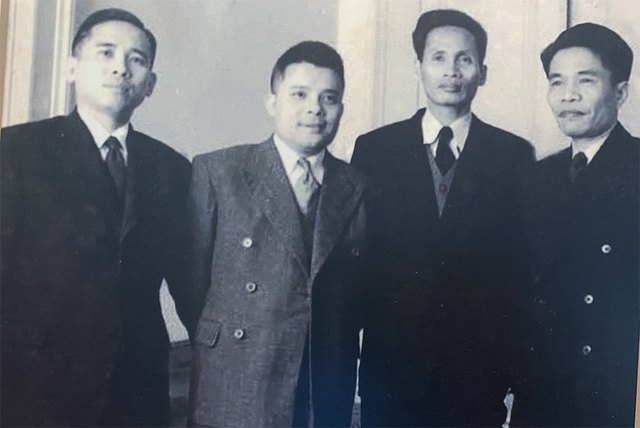
Leaders of the Democratic Republic of Vietnam delegation (from left to right) Tran Cong Tuong, Phan Anh, Pham Van Dong, Ta Quang Buu
Colonel Ha Van Lau's family documents
Lawyer Phan Anh wrote in his diary on May 8, 1954: “After Bidault finished speaking, it was our group’s turn. The entire audience was attentive. Everyone put on their headphones to listen. Mr. To (Pham Van Dong – PV ) spoke Vietnamese (the imperialists thought we spoke French), Hoang Nguyen translated into French. So for the first time, the Vietnamese language was heard in an international conference.”
Exactly 70 years after the conference, there are only two historical witnesses of the Democratic Republic of Vietnam Delegation left: Mr. Doan Do and Mr. Nguyen Lanh. Mr. Doan Do (born in 1926) in his life had held the positions of secretary to Prime Minister Pham Van Dong, Deputy Director and then Acting Director of the Central Institute for Economic Management... Participating in the Geneva Conference in 1954, he was assigned to work in the office, preparing documents for the conference.
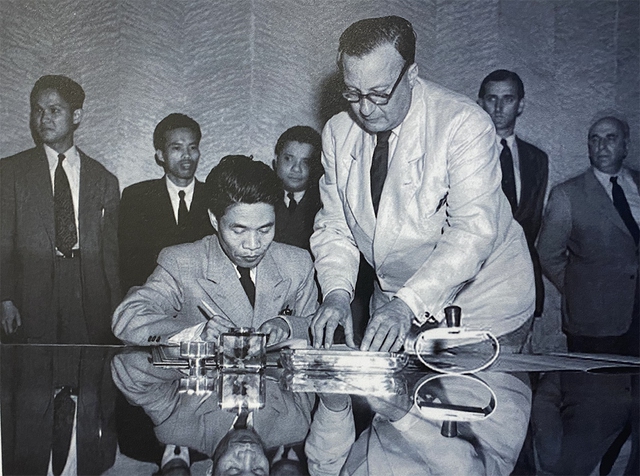
Deputy Minister of National Defense Ta Quang Buu signed the 1954 Geneva Conference document on behalf of the delegation of the Democratic Republic of Vietnam.
“In the history of diplomacy, no country has attended an international conference with as few people and as many difficulties as Vietnam,” said Mr. Doan Do, adding: “The Vietnamese delegation consisted of 5 comrades, and the staff at the beginning of the trip also consisted of only 5 people. One was Dr. Le Van Chanh, one was Colonel Ha Van Lau, comrade Viet Phuong was the secretary of the Head of the delegation Pham Van Dong, and I and another comrade chose to work at the Vietnamese delegation in Eastern Europe to take care of logistics. The work at that time was very difficult. There was a lot of work but few people, so each person had to do many things.”
According to Mr. Doan Do's memory, during the negotiation rounds, the intellectual competition was very tense, but Head of Delegation Pham Van Dong always sought to be proactive in all situations. Mr. Doan Do gave an example, at the opening session of the conference, Head of Delegation Pham Van Dong personally wrote the opening speech of the Democratic Republic of Vietnam Delegation in 3 versions of different lengths.
“Comrade Pham Van Dong thought that with such a large conference, the speaking time might be limited, so he wrote three speeches of different lengths to respond and clearly state Vietnam’s stance and ideology. Although Vietnam’s speech was short, it was considered important,” commented Mr. Doan Do.
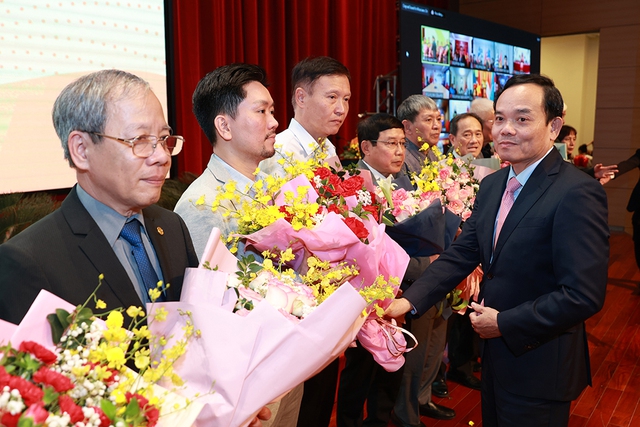
Deputy Prime Minister Tran Luu Quang presented flowers to the families of Deputy Minister Ta Quang Buu, Tran Viet Phuong and Hoang Nguyen at the 70th Anniversary of the Geneva Conference.
Diplomat Hoang Nguyen (1924 – 2007), a member of the military negotiation team, later wrote in his memoirs ( 1954 Geneva Conference on Indochina , People's Police Publishing House, 2015):
“At that time, I was the secretary of the Vietnamese Delegation, assigned by Head of Delegation Pham Van Dong to participate in the military subcommittee, and I still remember that the negotiations on the transfer of troops to Vietnam lasted all night and into the night without reaching a conclusion. The situation was very urgent because by midnight there was still no agreement. Mr. Ta Quang Buu was determined to maintain the 16th parallel, while France demanded the 18th parallel (…). It was actually 2:00 a.m. on the 21st. Finally, France brought them to the banks of the Ben Hai River, close to the 17th parallel. Deputy Minister Ta Quang Buu had to sign such a military clause. So the Geneva Agreement was signed on the 21st, but was announced on July 20, 1954 to keep the promise of the French Prime Minister”.
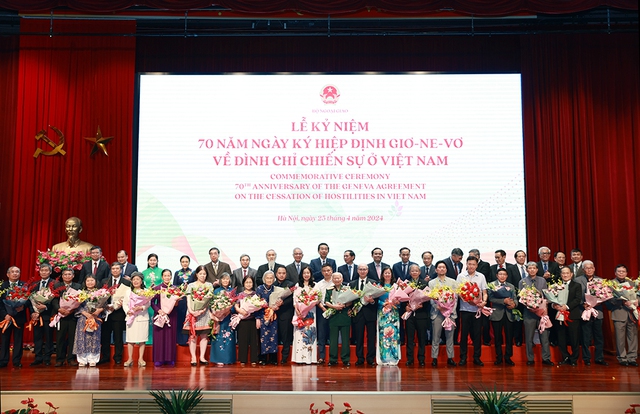
The 70th anniversary of the signing of the Geneva Agreement was organized by the Ministry of Foreign Affairs on the morning of April 25, 2024 in Hanoi.
Because on June 20, 1954, Prime Minister Mendès-France declared to the French people that he would complete the negotiations within 30 days, if not successful he would resign.
As one of the last two witnesses, Mr. Nguyen Lanh (born in 1932), a typist for the Vietnamese Delegation at the 1954 Geneva Conference, said that when he went to serve the conference, he was only 22 years old. He recalled some of his personal memories:
“The five members of the delegation led the delegation at the Le Cèdre villa in Versoix, on the shore of Lake Léman. This villa, also known as the Chateau de Versoix, has many trees. The staff and attendants serving the delegation stayed at the Hôtel d'Angleterre. To catch the news, journalists were always ready to stand outside the building where our delegation lived. Back then, there were no telephoto lenses, so many reporters climbed up the walls to take pictures. I remember that every time there was a press conference, many of the delegation members were mobilized to work as waiters.
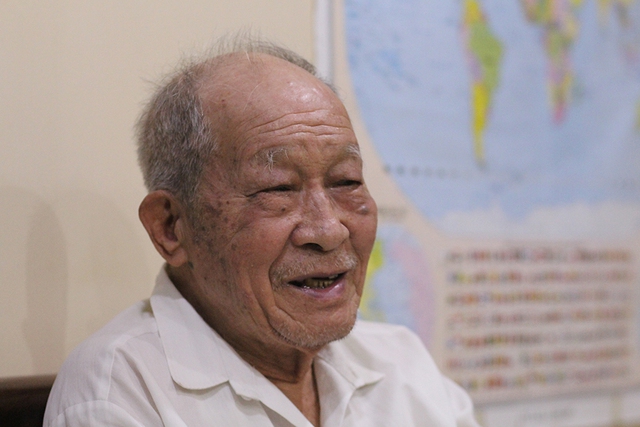
Mr. Nguyen Lanh, one of the last two witnesses of the 1954 Geneva Conference




![[Photo] Prime Minister Pham Minh Chinh starts construction of vital highway through Thai Binh and Nam Dinh](https://vphoto.vietnam.vn/thumb/1200x675/vietnam/resource/IMAGE/2025/5/12/52d98584ccea4c8dbf7c7f7484433af5)
![[Photo] Prime Minister Pham Minh Chinh works with the Standing Committee of Thai Binh Provincial Party Committee](https://vphoto.vietnam.vn/thumb/1200x675/vietnam/resource/IMAGE/2025/5/12/f514ab990c544e05a446f77bba59c7d1)
![[Photo] Prime Minister Pham Minh Chinh receives Swedish Minister of International Development Cooperation and Foreign Trade](https://vphoto.vietnam.vn/thumb/1200x675/vietnam/resource/IMAGE/2025/5/12/ae50d0bb57584fd1bbe1cd77d9ad6d97)

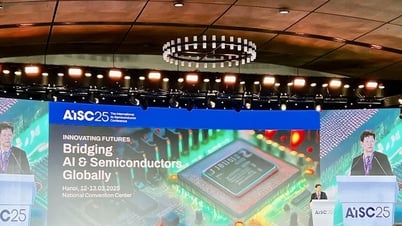

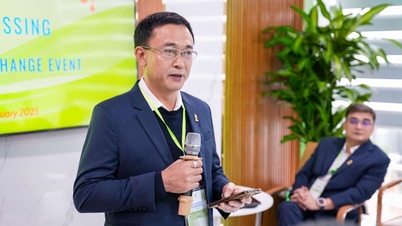






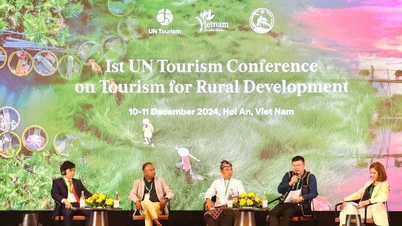
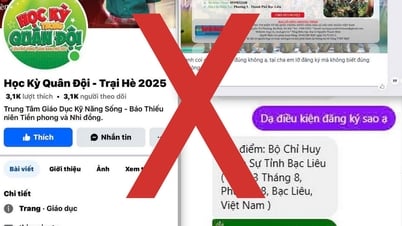
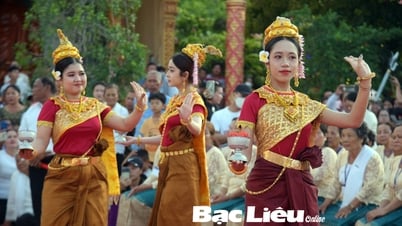
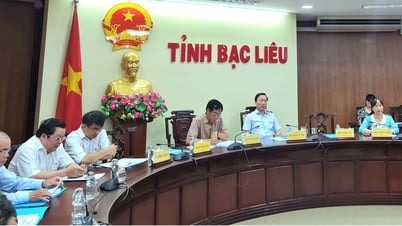
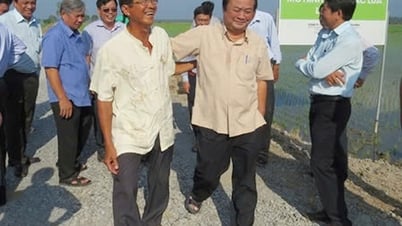
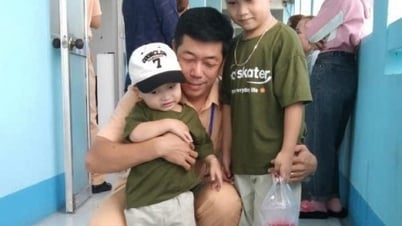
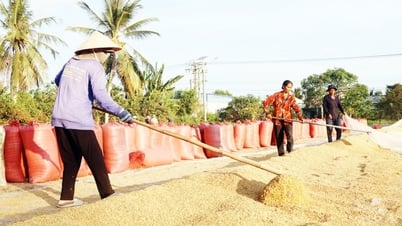




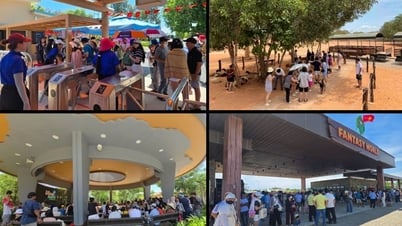

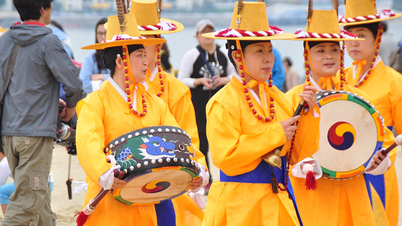
















































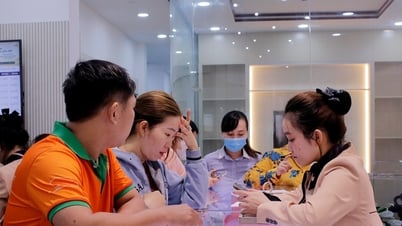

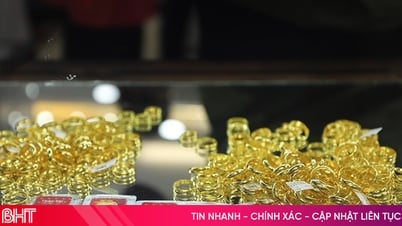




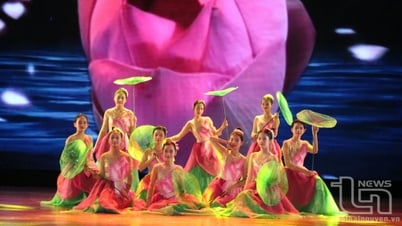

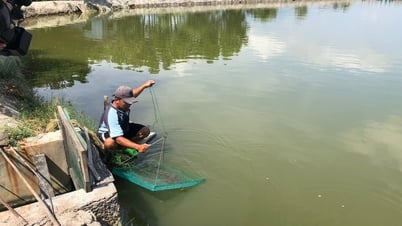











Comment (0)